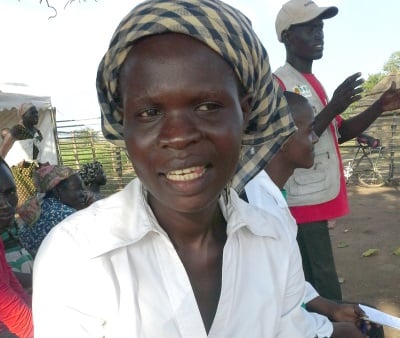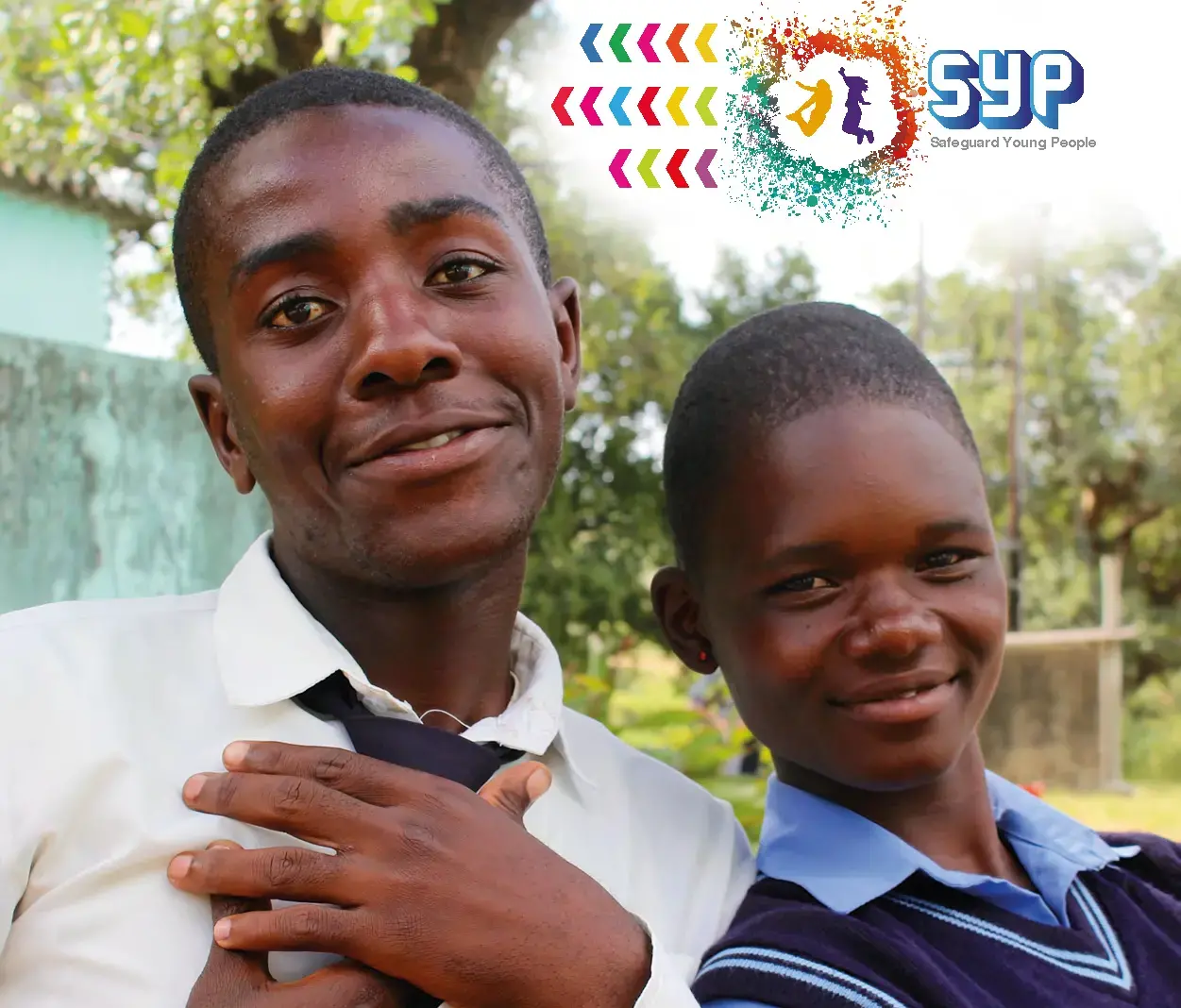BOROLI REFUGEE SETTLEMENT, Adjumani District, Uganda – As a refugee, Rose Dadia, 25, has become a community activist with a critical role. She has joined the Peace Drama Group, which uses every opportunity where large groups of people gather to entertain people.
But entertainment is not their only agenda – they also provide powerful messages that are helping to transform mind-sets and improve lives.
Apart from dealing with the psychological and emotional stress of life in an emergency situation through their plays, poems, music and dance, they are also helping to educate people on gender-based violence and HIV prevention. These are two challenges that people living in refugee camps are particularly vulnerable to.
“It is through the dramas that we learn how to end violence as we depict the consequences of violence in the home.” – Rose Dadia, refugee
In doing so, Ms. Dadia – a South Sudanese refugee who previously worked as an accountant and now lives in the camp with her husband and their four-year-old daughter – knows she is making a positive impact on the community.
“In our dramas, we send messages on the dangers of gender-based violence (GBV). And it is through the dramas that we learn how to end violence as we depict the consequences of violence in the home,” she said.
“People appreciate the messages”

In one of their productions, she explained her role of a mother with an alcoholic husband who returns home drunk every night and demands a meal that he did not provide for. This leads to conflict in the home, which is then taken up at the local council level. The community leader advises mediation, and reminds them that the law of Uganda does not allow for violence in any form. The play ends on a positive note as the partners decide to live in peace.
Ms. Dadia is optimistic that their messages are effective: “When we are on stage, we see the crowds laughing and clapping, which shows that they are picking up and appreciating the messages,” she said.
UNFPA, in partnership with the Agency for Cooperation and Research in Development (ACORD), uses music, dance and drama to disseminate information on social issues like sexual and reproductive health (SRH) and GBV in the settlements. Songs and poems are easier to remember and remain longer in people’s memory, which makes them a good vehicle for conveying the messages.
But the aim of these drama groups is not just one of messaging. It is also a powerful way to empower young people in refugee camps, creating a sense of community and giving them purpose.
Empowering youth through participation
For the many young people living cheek by jowl in Boroli camp, and others like it, growing up is a particularly stressful experience. The usually challenging transition from childhood to adulthood is exacerbated by the absence of role models and the breakdown of the social and cultural systems in which these young people’s families once lived. Because of this, they need special support.
Dance and drama groups are a powerful tool for empowering youth in refugee settings. In emergency settings like this one, the main principle of working with young people is to promote their participation.
Creative activities like music, dance and drama have proved an effective way to help young people survive and thrive emotionally, spiritually and physically. It helps them use their time more productively, while dealing with the psychological and emotional stress of life in a refugee setting.
In many ways, these activities play a positive role in helping young people achieve their potential.
“Drama is a good way of uniting people and creating peace.” – Rose Dadia, refugee
Artistic activities can also help communities preserve their culture while away from their native land and create a sense of community with other refugees in the camp, and at the same time help bridge the gap between refugee and host communities: “Drama is a good way of sending messages. It is also a good way of uniting people and creating peace,” she said.
Providing positive messages through church

In other refugee settlements, like Ayilo in Adjumani District, church gatherings are being used by drama groups to disseminate information on HIV and GBV prevention.
“On Sundays we go to church because it is only there that you can find a big community gathered together. The community is now appreciating us and this is encouraging,” said Abraham Ayuen, a drama group member.
Mapping and helping pregnant women
As volunteers, they are also involved in pregnancy mapping in the camps in order to convince expectant mothers in the community to attend antenatal services and to deliver at health facilities.
“In the community, pregnant women need our support. We do pregnancy mapping and encourage them to go to the health clinic for antenatal checkups, where they test for HIV and prevent mother-to-child transmission,” said John Thon, Deputy Team Leader of the drama group in Ayilo refugee settlement.
In refugee communities where literacy levels are low, oral means of communicating information have proved to be more effective, he said.
“Most of the people in the community cannot read and write, so we use local dialects to communicate our messages to them.” This, he said, has been well received.
“When we perform plays in the church, at the end we get a lot of clapping and standing ovations. We also get a lot of positive comments in appreciation, showing that they have understood the messages. This is a benefit to the community and they really appreciate our work.”
By Evelyn Matsamura Kiapi




